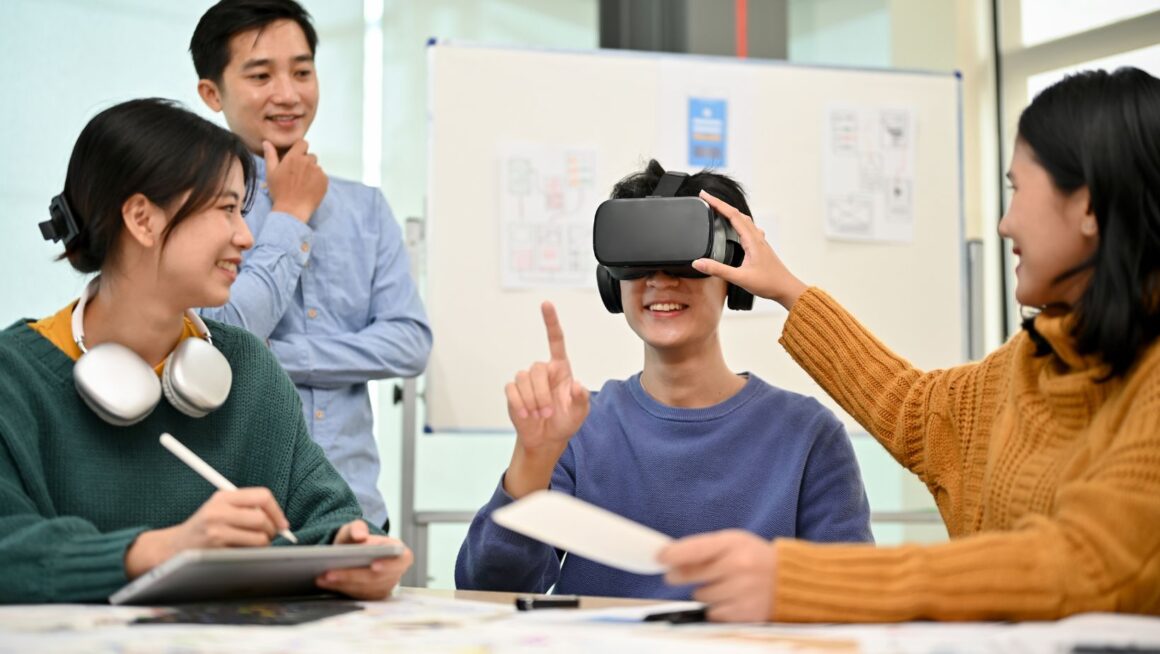Game development is an exciting yet complex process, requiring seamless collaboration between designers, developers, artists, and clients. If you’re working with a game development team in London, understanding how to work together effectively can make all the difference in bringing your vision to life.
With London being a global hub for gaming innovation, you’ll find no shortage of talent. But how do you ensure smooth collaboration, avoid common pitfalls, and maximise your project’s success? Let’s dive in.
Setting Clear Goals and Expectations
Every successful project starts with a solid plan. Before development kicks off, make sure you and your London-based team are aligned on key aspects such as:
Project Scope: Define the game’s core mechanics, target audience, and key features.

Timeline and Milestones: Set clear deadlines for each development phase, from prototyping to final release.
Budget Considerations: Discuss costs upfront to avoid surprises later.
Roles and Responsibilities: Ensure everyone knows their part in the process.
Leveraging London’s Game Development Talent
London is a melting pot of gaming talent, offering expertise in everything from AAA game development to mobile and indie projects. When working with a game development team, understanding their strengths and specialisations is key.
- Developers & Engineers – Handle the technical aspects, coding gameplay mechanics and optimising performance.
- Designers & Artists – Bring the game to life visually, from character modelling to world-building.
- Animators & Sound Designers – Enhance immersion with smooth animations and compelling sound effects.
- QA Testers – Ensure the game runs smoothly by identifying and fixing bugs before launch.
By recognising each role’s importance, you can foster a more collaborative and respectful working relationship.
Communication and Workflow Great Practices
Clear and consistent communication can make or break a project. Here are some best practices to keep things running smoothly:
Schedule Regular Check-Ins – Weekly or bi-weekly meetings help track progress and address any roadblocks early.
Encourage Open Feedback – Constructive criticism should be welcomed from both sides to refine the game.
Use Documentation Tools – Keeping detailed notes in shared Google Docs or Notion ensures everyone stays on the same page.
Be Flexible – The creative process often requires adjustments, so be open to changes that improve the game.
If your team is working remotely or in a hybrid setup, consider using Zoom or Microsoft Teams for meetings to maintain strong communication.
Navigating Legal and Contractual Agreements
Game development involves various legal considerations, and it’s essential to protect your work from the start. Key legal aspects to cover include:
- Intellectual Property (IP) Rights – Clarify ownership of the game’s assets and code.
- Non-Disclosure Agreements (NDAs) – Prevent leaks of confidential information.
- Contracts & Payment Terms – Define payment schedules, project deliverables, and cancellation terms.
Working with a UK-based solicitor who specialises in game development contracts can help ensure all agreements are legally sound.
Testing and Iteration: The Key to a Successful Collaboration
No game is perfect from the start—testing and iteration are crucial parts of the process. London has a strong QA and beta testing community, and incorporating them into your project can significantly improve the final product.
- Internal Playtesting – Developers and designers test early versions to refine gameplay.
- External Beta Testing – Engaging real players provides valuable feedback.
- Bug Tracking – Tools like Bugzilla or TestRail help streamline the debugging process.
Encourage testers to be brutally honest—early criticism leads to a stronger final game.
Reasons to Hire an External Game Development Team
Are you aiming to release a game with your business? Of course, you want to ensure you’re investing in an interactive and exciting game that’s going to reflect well on your brand. But, if this is something that you’ve never done before, you might be unsure of where to begin.
Know that many companies are choosing to outsource and hire game development teams. It’s been found to be cheaper, easier and create better games. Let’s take a look at the main reasons why you should consider going down this road.
Instant Expertise
Do you have no experience building a game and don’t have a team that can assist you with this project? This is the number one sign you should hire an external game development team. Yes, you could hire in-house, but this comes with many risks. You need professionals with experience that can get started straight away. This is where outsourcing comes in. You acquire experience with no effort, and they immediately understand what they need to do is build the perfect game.
Cost-Effective
Are you worried about how much this game is going to cost your business? Perhaps you have a budget, and your concern is running over this amount. Well, this is easily done with in-house operations. Think about all the money you have to lay out before you can even get started on the game. We’re talking about advertising, hiring and onboarding. Paying monthly fees to the game development team is much more cost-effective.
Time-Saving
Are you concerned that the creation of a game could distract you from all of your other duties? Indeed, it’s a huge project and one that takes up a lot of energy and time. To avoid your team being overstretched, you can hire external game developers. This ensures that you’re still completing your goals but without lacking manpower.
Final Thoughts
Collaborating with a London game development team can be a rewarding experience when done right. By setting clear goals, maintaining open communication, leveraging local talent, and planning for both development and post-launch support, you can create a game that stands out in the competitive gaming industry.
If you’re looking for expert game developers in London, start by attending local networking events, researching studios, and building relationships within the community. With the right approach, your game could be the next big hit!


